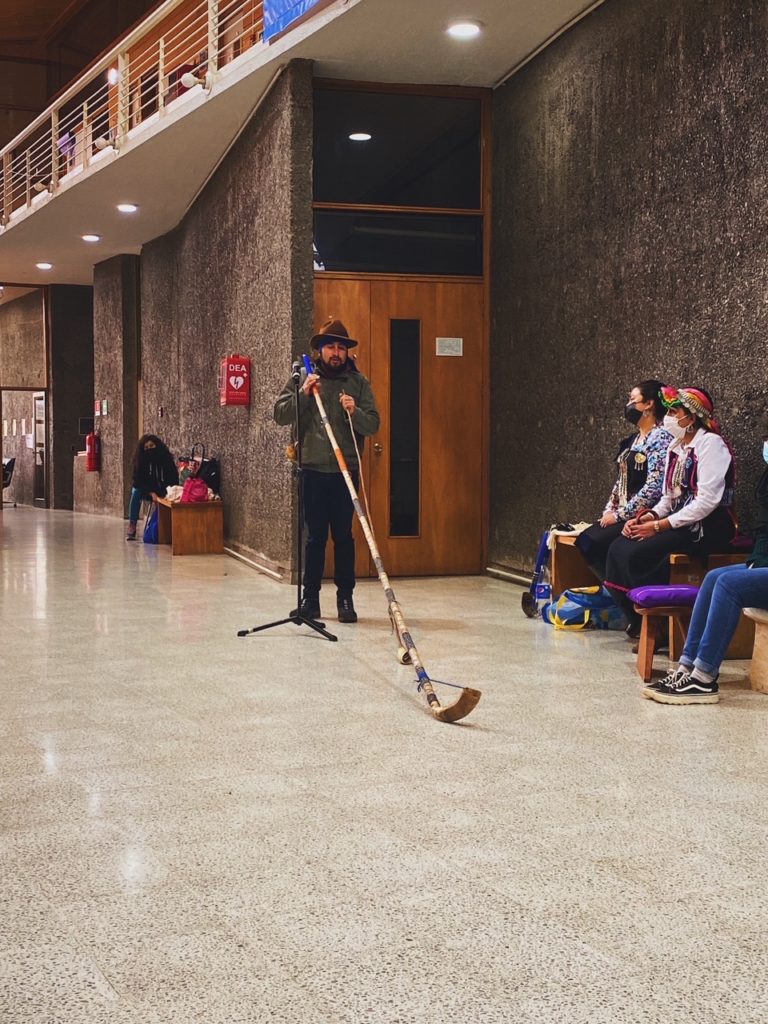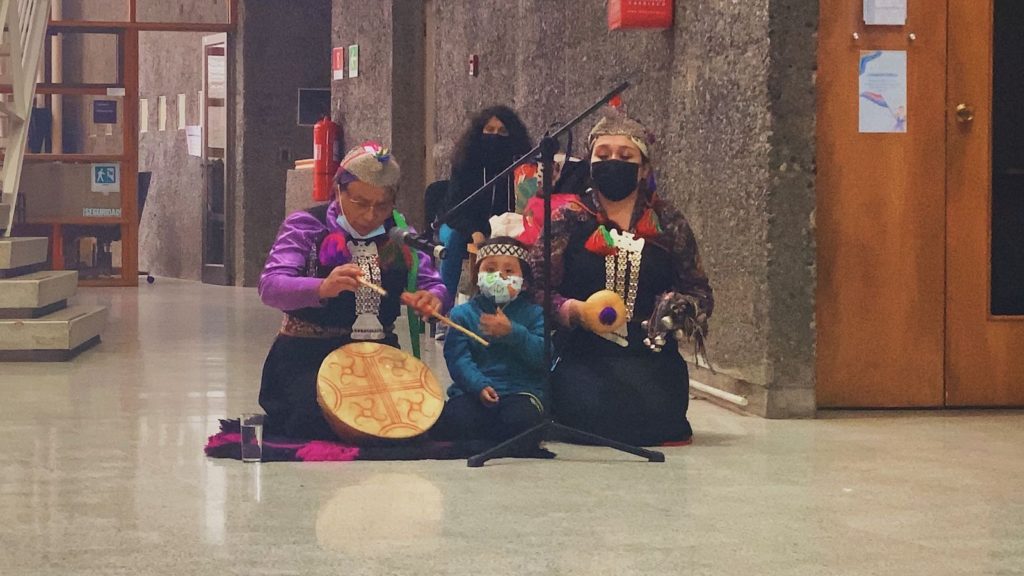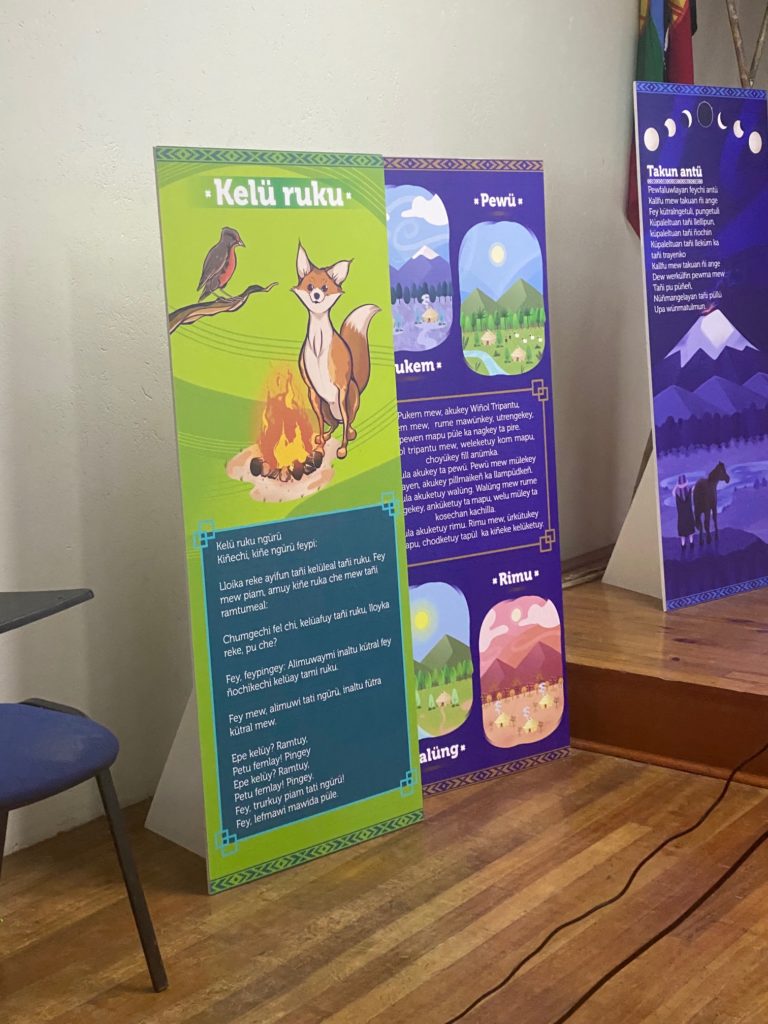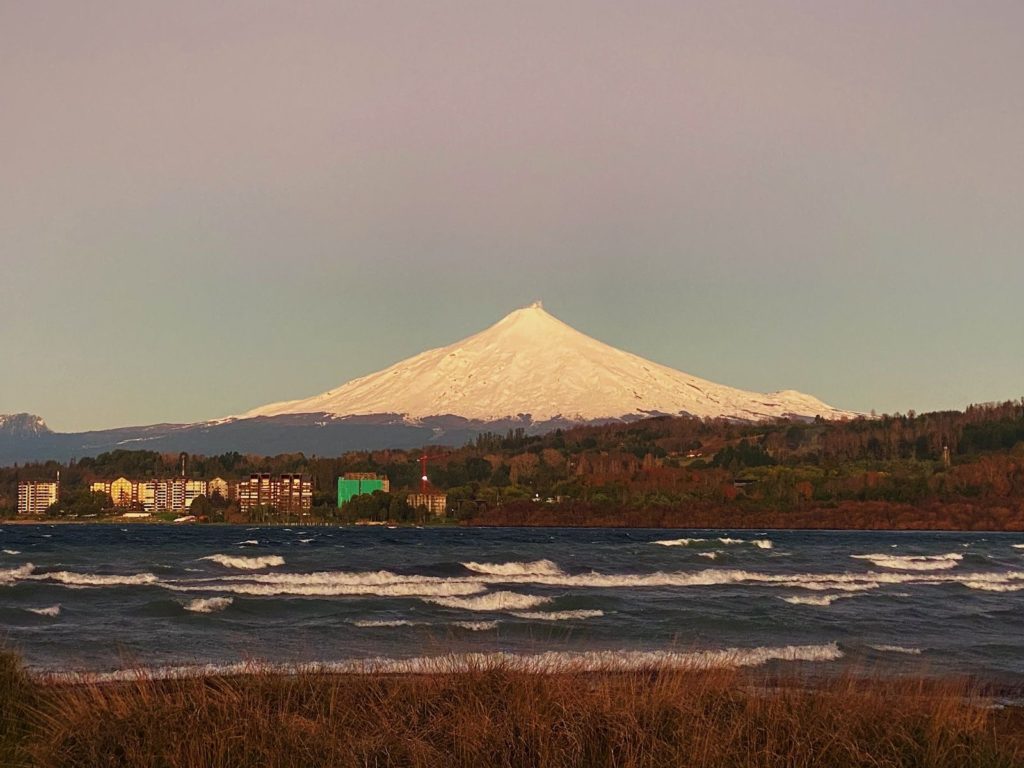During my time in Chile I had the opportunity to travel south to Villarrica and the Pontifical Catholic University of Chile campus located there. Our trip here coincided with the celebration of the Mapuche New Year, We Tripantu, on the winter solstice, and our group attended and participated in an event on campus as part of this celebration. The celebration included several speakers of various age groups (university students through retirement age) that spoke in Spanish (often referred to here as castellano because of its origins) and Mapudungun, a religious ceremony, and several music components such as a demonstration of traditional instruments and singing and dancing, the last of which got spectators involved as well. The speakers emphasized the importance of keeping the traditions alive in things such as making and playing instruments and their language, the stigmatization of being Mapuche (the perception of the Mapuche as fat, short, and dark by colonizers had a lasting impact on social psychology) and learning to be proud anyways, and the sharing of their culture with younger generations. The Mapuche had their own land – wall mapu – but were not treated kindly (to put it mildly – see the Forrahue massacre) by colonizers and it is a shame that this process of rediscovery has to occur. However the efforts of the people are visible – signage across the campus and in the community is primarily in Mapudungun with Spanish included as a secondary language and young members of the community make an effort to keep their language and culture alive through their participation in such ceremonies as we saw. The history of the Mapuche with respect to colonizers is eerily similar to that of other indigenous groups’ encounters with the western world. In the present day, it is our responsibility to attempt to right these wrongs by listening to these groups and supporting them as they see fit.



